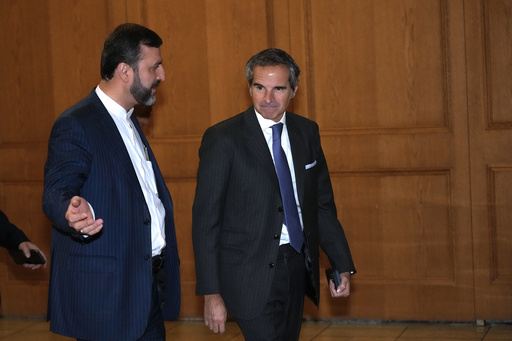DUBAI, United Arab Emirates — The leader of the International Atomic Energy Agency (IAEA) expressed concerns on Thursday regarding Iran’s nuclear ambitions, indicating that the opportunities for negotiation and dialogue are diminishing as conflicts in the Middle East persist and tensions increase with the return of a familiar face to the U.S. presidency.
Rafael Mariano Grossi was in Tehran seeking to restore access for IAEA inspectors to monitor Iran’s nuclear activities and address unresolved issues surrounding its program. His previous attempts have met with limited success since the United States exited the nuclear agreement with Iran in 2018.
In a joint press conference with Iran’s atomic energy official, the comments from both Grossi and his Iranian counterpart revealed significant gaps in discussions, even as some nations prepare to advocate for action against Iran at the forthcoming IAEA Board of Governors’ meeting.
Grossi highlighted the necessity for “concrete, tangible, and visible results” to demonstrate progress in their cooperative efforts, which should contribute to easing tensions and potentially avoiding conflict.
The situation has escalated since the nuclear deal’s dissolution, with Iran now enriching uranium to levels approaching 60%, a close proximity to the weapons-grade threshold of 90%. Disruptions to IAEA surveillance cameras have been reported, and Iran has restricted access for some of the agency’s most seasoned inspectors. Additionally, Iranian authorities have intensified rhetoric suggesting a shift toward the pursuit of nuclear weapons, something that has caused concern for the West and the IAEA since Iran ceased its organized weapon program in 2003.
During the press conference with Mohammad Eslami from the Atomic Energy Organization of Iran, Grossi emphasized that while ongoing discussions were important, the urgency of the situation is heightened by the time constraints involved.
He remarked, “The fact that international tensions and regional tensions do exist — this indicates that the space for negotiation and diplomacy is not expanding; it is, in fact, contracting.”
